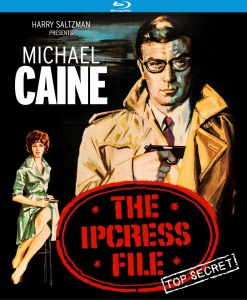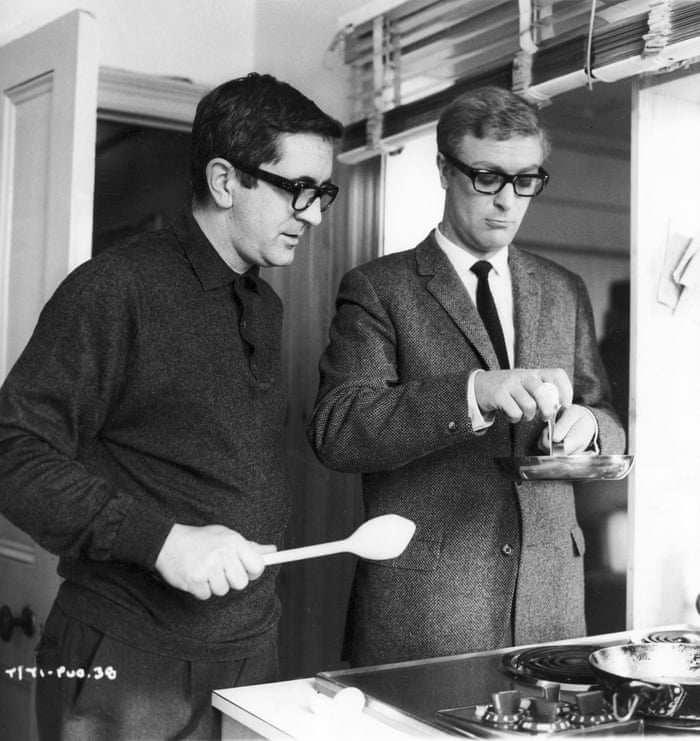Director: Sidney .J.Furie
Cast: Michael Caine. Guy Doleman. Nigel Green. Sue Lloyd.
In 1962 the first James Bond film Dr No was released. In 1962 Len Deighton wrote his first book, The Ipcress File. Perhaps it was a coincidence.
By 1965 when Thunderball was released, the Bond mania had spread worldwide. Everyone thought that spies behaved like Sean Connery. Connery was privately upset with his typecasting and didn’t attend the premiere of Thunderball as he was shooting for Sidney Lumet’s The Hill in Spain. (Teaser : coming in a future blog ).
There is a famous incident which has perhaps grown in retelling and acquired a myth of its own. Isser Harel, the head of the Israeli Secret Service Mossad, watched Goldfinger and reportedly said “what has savouring wine got to do with spying? Why isn’t he using a cover name? rubbish”. Or words to that effect! Anyway, it is a good apocryphal story.
The nameless hero of the Deighton book couldn’t have been further from the Bond persona, on or offscreen. By Deighton’s admission, he never expected the book to be a bestseller and a sensation.
 The first Deighton book took three more years to be filmed. The nameless hero was christened Harry Palmer by producer Harry Saltzman (who also co-produced the Bond films). This time the audience flocked to the theatres more and came out feeling – real-life spies MUST be like that. It also established Michael Caine, fresh from Zulu’s success, as the coolest spy and a counterweight to the Bond mania, and boosted his stardom to new heights.
The first Deighton book took three more years to be filmed. The nameless hero was christened Harry Palmer by producer Harry Saltzman (who also co-produced the Bond films). This time the audience flocked to the theatres more and came out feeling – real-life spies MUST be like that. It also established Michael Caine, fresh from Zulu’s success, as the coolest spy and a counterweight to the Bond mania, and boosted his stardom to new heights.
The first Palmer film is an excellent introduction to the persona. Palmer is insubordinate, and cunning and has a high degree of self-preservation. In the process, he got some things right for Queen and Country.
Scientists are being kidnapped and delivered back after ransoms are paid but in damaged condition, making them unfit for work. Colonel Ross (Guy Doleman) seconds Palmer (Michael Caine) to work under the super-strict Dalby (Nigel Green), who is a stickler for rules and has made it clear to Palmer that he is on a tight leash. Palmer becomes friendly with Jane Courtney (Sue Lloyd), who is tasked with keeping an eye on Palmer.
The man concerned with the kidnapping and returning the damaged scientists is codenamed BlueJay (Frank Garliff). The Americans think the (unnamed) British department is rotten with spies, and the main suspect is Palmer.They raid a warehouse where they stumble on a clue – the word IPCRESS.
He knows something is rotten inside the department and must find out who the traitor is.
Soon Palmer is kidnapped by BlueJay and subjected to heavy doses of brainwashing and mental torture.
The film’s titles are superbly designed. Everything is out of focus. An alarm clock rings. Palmer silences it and reaches out for his glasses, and the titles and the room are in focus. Most of the shots are at acutely high or low angles giving a vertiginous feel to the proceedings. The title music MUST be heard first as it provides an idea of something ominous – something terrible is about to happen. Check this out
If the “musical sound” is familiar, that’s because it’s the same composer who did the Bond series – John Barry, who uses jazz-influenced horns to excellent effect throughout the film. Many a time, the background score enhances the onscreen happenings.
Caine is perfectly cast as the working-class hero with a chip on his shoulder against the establishment. As he tells Jean, “I was making a whole load of money off the German Army in Berlin, and Ross decided to make an example of me”. So he resents being shanghaied into the intelligence services as the alternatives are unpleasant.
Unlike the Bond series, the overall atmosphere is of a dreary department that scrimps and saves. Daily report the T105 – just like a daily sales report – has to be filled. Every penny of the expenses has to be accounted for. In short, this is an entirely different universe away from the glitz and glamour of the Bond Universe.
Len Deighton has credited Michael Caine with bringing Palmer to life. He has openly acknowledged his interpretation of the nameless hero. Caine is perfect as the anti-Bond. This can’t be emphasised enough.
Palmer shops for gourmet food in supermarkets cooks himself and doesn’t drive a flashy or fast car. Usually takes a taxi or public transport unless he is following someone. Is a great lover of Mozart and Beethoven. The only thing in common with Bond is that he “likes birds”. Oh yes – he wears glasses all the time (Well – not all the time as he tells Jean)
There are some minor deviations from the book. An entire sequence involving an American nuclear test in a Pacific atoll has been deleted from the film. It is still a tight film. Despite the end of the Cold War, the film is still fresh and intriguing.
In one shot, when Caine couldn’t quite get how to crack open two eggs in one go,. Deighton stepped in, and the close-up is of Deighton’s hands. Check out the pics below of Deighton teaching how to “cook”. (Deighton also authored a cookbook series ).

That’s Len Deighton’s hands in the close up, cracking eggs with one hand .
You can check out the film at this site
So why should you see the Caine film? Simple. Crackling witty dialogues that mirror Deighton’s universe. Above all. Caine.
Trivia: Caine’s boss Ross (Guy Doleman) has a role in Thunderball as a Spectre Operative.
The book was remade as a TV series in 2022. This one includes the American nuclear test scene. In keeping with 21st-century sensibilities, Jean has a more prominent role in the script. To be fair, Joe Cole has a tough job matching Caine’s cool. But he lives up to the expectation of the script and does a good Palmer. The TV series is on Amazon Prime. Overall the Series lives up to the expectation and faithfully keeps to the book.
Script – 4 out of 5
Story – 5 out of 5
Direction – 5 out of 5
Photography – 4 out of 5
Total – 4.5 out of 5
Leave a Reply
Want to join the discussion?Feel free to contribute!